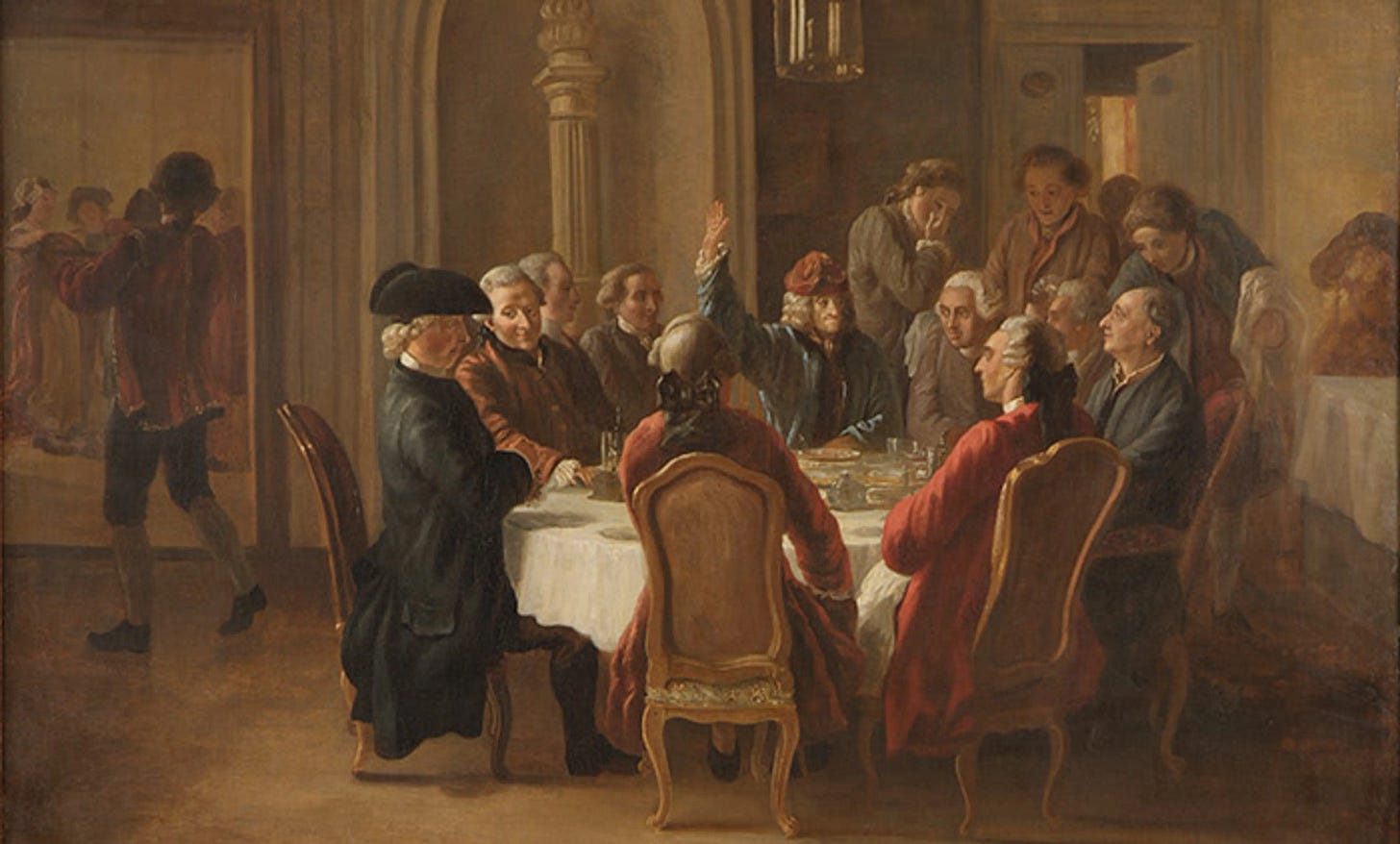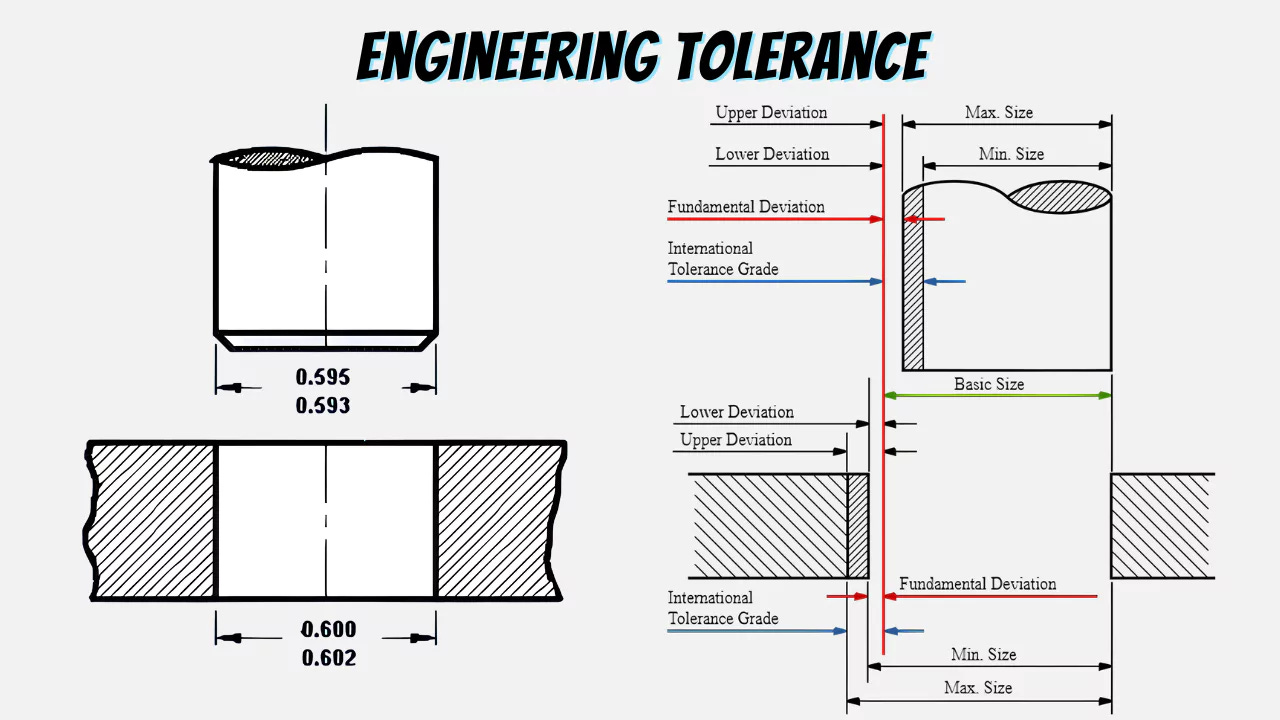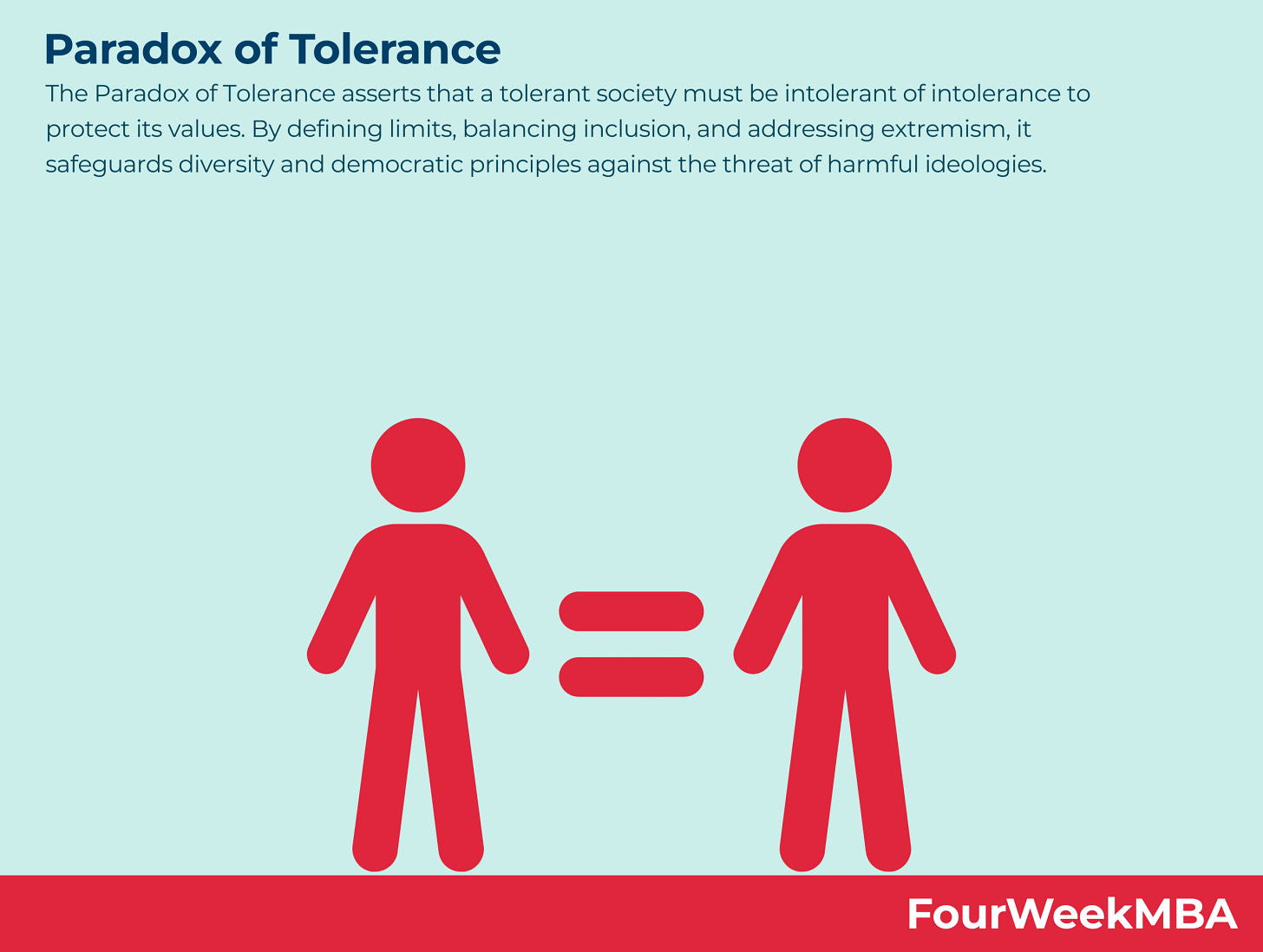Tolerance: What It Used to Mean and What it Means Now
How key words get distorted and repurposed.
Many of us will probably remember what the word tolerance used to mean. It indicated a willingness to rein in one’s instinctive reactions on some issue or with regard to some person, and a readiness instead, within reasonable limits, to consider the matter more fully or to hear that person out. It was a characteristic of the mature adult citizen who was able to exercise some degree of detachment from his own allegiances and points of view, sufficient to consider the points of view and allegiances of others.
Tolerance in this sense was one of the key values of the Enlightenment as it took shape in the latter half of the 17th century before becoming dominant in European thought in the 18th. The tolerance promoted by the Enlightenment was in large measure a response to the wars of religion which had wreaked havoc in Europe for a century and a half before that. Enlightenment thinkers contrasted the blind and dogmatic passions stirred up by those wars with a reasonable scepticism, expressed as a readiness to take a critical look at other people’s beliefs, and even turn that same look on one’s own cherished opinions.
With the exception of the totalitarian eruptions of the 20th century, Western societies since the Enlightenment have paid at least lip service to tolerance as a benign value, whether in the social or personal domain. It wasn’t always easy to practise, for it meant putting up with other people, putting the bear in forbearance, but doing so indicated a commendable self-control and some kind of ability to put oneself in someone else’s shoes. Intolerance, by contrast, suggested someone with blinkered views driven by a hankering to be seen as right rather than with a disinterested concern for truth.
Tolerance, in a word, was seen as a quintessentially civilised and civilising value, with deep roots in the classical ideals of balance, reasonableness and composure. How then can it be that we hear so much talk about tolerance now in the new order of things, and yet we live in a patently imbalanced, unreasonable and (I don’t think it is too much to say) decomposing world?
The answer in essence is quite simple. The meaning of tolerance has changed in a subtle yet far-reaching way over the last few decades, to the point where it means almost the opposite of what it used to mean.
The globalised Regime that has been slowly forming over those decades and that took definite shape through the world-wide Covid operation is tireless in its promotion of something called tolerance. And yet this thing they promote has nothing to do with reasonableness and civilised forbearance; nor does the intolerance that is constantly denounced by Regime mouthpieces have any obvious connection with fanaticism or bigotry.
The change in the meaning of tolerance and its antonym has come about in a curious way, not by an outright distortion of the old sense of those words but by a leaning into them from a different angle. For tolerance also has a technical and scientific meaning, best exemplified by the concept of engineering tolerance. This term refers to permissible limits or variations, a kind of margin of error, or margin in the degree of required exactitude, of key parameters.
As Wikipedia explains, “[n]o machine can hold dimensions precisely to the nominal value, so there must be acceptable degrees of variation. If a part is manufactured, but has dimensions that are out of tolerance, it is not a usable part according to the design intent… A variation that is beyond the tolerance (for example, a temperature that is too hot or too cold) is said to be non-compliant, rejected, or exceeding the tolerance.”
But what does this have to do with the way our society is run? Actually quite a lot, once the principles legitimately applied in mechanical or chemical or electrical engineering are brought to bear directly on human beings in the form of social engineering. After all, this transposition is central to the technocratic approach to human life. In such a view society is a passive amalgam to be engineered into something fit for purpose - but for what purpose, as defined by whom? Apparently not by us, for we’ve never been asked. In such a society we are not the active subjects but the passive objects of procedures that are carried out upon us.
In this context tolerance is something to be engineered just like everything else. Far from the value once promoted by the Enlightenment, it now signifies a constant testing of what the mass of people will put up with, characterised by an alternate easing and intensification of determinate pressures, sometimes on specific sections of the population, sometimes on the population as a whole.
All of this was played out quite brazenly over the course of the Covid experiment. Will the masses allow themselves to be locked down in their own homes without valid medical or scientific justification, and in flagrant defiance of basic human rights? Answer: yes. So we have here a variation within the tolerance. Will they take to wearing ridiculous and ineffective face masks just because they’re instructed to do so by “experts” who cannot be held to criticism? Answer: yes again, so another variation within the tolerance. We’re doing well, so let’s keep going.
Will they offer themselves for injection with experimental vaccines if these are presented as their only “Get Out Of Jail” card? Again we know, by and large, the answer to that question. But what then about the recipients’ physical tolerance for such experiments? Ah, now that’s another matter. For the human body has its own criteria, not to say its own innate wisdom, however disregarded, and hence its own levels of tolerance for the abuses to which it is subjected. Yet it can protest against those abuses only in its own language, by becoming stressed and fatigued, by falling ill or, when there is no other way out, by dying. In the latter case it becomes a number in the great Covid vaccine statistics game, or what is much more likely, its death is assigned to some cause other than the experimental jabs.
The question now is whether this collective experience might have undermined people’s tolerance for further experimentation. The steep decline in the take-up of Covid boosters would suggest it has. On the other hand this might just be a further example of everyone looking around to see what everyone else is doing, or in this case not doing, and acting accordingly.
The Covid psy-op was a watershed in many ways, not least in its effective redefinition of tolerance. For it marked something like the death of the old meaning of the word and the entrenchment of its new signification. The death of the old was signalled by the fact that those who stood out against the experiment were turned into pariahs, yet none of this was seen as a mark of intolerance on the part of those who drove them to the margins of society.
Many of us attempted to discuss the issues in a reasonable manner but were dismissed from the get-go - yet somehow that kind of shutdown was never thought of by the perpetrators as intolerant behaviour. Many experienced being shunned by friends and family, but did that demonstrate intolerance on the part of the latter? Apparently not. Or maybe you were no longer able to enter public spaces, and private ones were debarred, yet remarkably that didn’t amount to intolerance either. Or you defied a jab mandate and lost your job, or you lost custody of your children because of a refusal to be injected - yet even those things were not flagged up as flagrant intolerance bordering on outright persecution. How could it be when the whole public face of society that cheered on these measures, from media to politicians to experts to celebrities, were all self-regarding paragons of the new engineered tolerance that had effectively replaced the old?
Tolerance used to indicate a value that governed the interaction of citizens who were at least nominally equal in legal and political status. Tolerance as currently practised is an exercise in gauging exactly what people will put up with at the hands of corporate capital, the State and its quasi-State agencies and mouthpieces. That means you are a tolerant person if you take your medicine without demur, literally or figuratively, and you are an intolerant person if you resist, raise objections, call for open discussion of the issues at hand, or otherwise make a nuisance of yourself.
Covid was the crucible where the old concept of tolerance was finally melted down, and where the contours of the new one were given their finishing touches. But of course it didn’t begin there nor has it ended there either, for we can see the same anti-principle at work in other contexts, most strikingly in the wars that are currently ravaging Ukraine and Palestine. Israel bombs hospitals and schools and that’s a variation within the tolerance, because bad things happen in wars and Israel was provoked and now let’s move on to the next news item. Russia bombs hospitals and schools and that’s a variation out of the tolerance, an indescribably heinous act, and we’re expected to cry out to the heavens, or to NATO, for vengeance.
But where the new meaning of tolerance is given its most effective expression is on the question of mass migration. For decades now, but at an ever-increasing rate in the last few years, the once cohesive and relatively prosperous countries of Europe and North America have been crammed like force-fed geese with millions of Third World migrants. The analogy, unfortunately, is doubly appropriate, first because the goose has no control over what’s being stuffed down its gullet, and second because the very act of stuffing it stifles any attempt at vocalising a protest.
Curiously enough, gagging a person or animal can equally mean stopping their mouths or keeping their mouths open involuntarily. Both senses fit the bill so far as mass migration is concerned. We are being gagged in the sense of having the policy shoved down our throats, but we are also gagged - silenced - should we object to what is happening to us. But even where we do manage to vocalise a protest, our objections immediately demonstrate that we are intolerant vis-à-vis the plans that have been made for us by the Powers That Be.
Our rulers have determined that no limit of tolerance has been reached so far as mass migration is concerned, and probably never will be reached - not surprisingly, since no limit to this particular experiment has ever been envisaged. This means that if you, a lowly citizen, see fit to envisage a limit anyway, you are far-right - another term which has undergone a remarkable change of meaning in recent times. Being far-right used to suggest a penchant for fascistic ideologies, whereas now it simply means holding any kind of view that situates you beyond the tolerance so far as officially sponsored discourse is concerned.
We can begin to see now how slippery the term really is. For those who rule over us are constantly testing our limits of tolerance, be it on mass migration or other things, and when we “fail” the test, when we decide that “enough is enough”, we become - again in the engineering sense of the term - “intolerant” of the pressures ratcheted up on us. It then becomes the job of another head of the Hydra, the moralising head, to portray this provoked reaction as a mark of moral turpitude: you fail to accept the measures we impose on you because you are a bad person. And the ploy works because so many people who might otherwise have their wits about them are so concerned with being good, and being seen as such.
This is a particular weak point of the middle classes. Am I in danger of being called intolerant? Oh no, that can’t be. What would my on-message relatives, my colleagues at work, my social circle make of that? After all, intolerance has been skilfully framed as an attribute of the working class, whatever remains of it, or should we say, of the underclass, as The Guardian would call it. Worse still it is the hallmark of the white underclass, so if you’re white yourself it will be all the more important to mark your distance with an appropriate display of virtue signalling. You can’t be seen to have anything in common with that great mass of left-behinds, especially should they riot or otherwise cause trouble. Instead if you condemn them from a height with sufficient vehemence you might even end up believing that you occupy the “moral high ground”, which by all accounts is a very gratifying sensation.
What we call liberals or left-liberals or progressives and so on are really just the nice middle classes in battle dress - with an emphasis on dress. In the past such people tended to pride themselves on their tolerance, and maybe that was not a bad thing for as long as the term had some humane significance. (Whether they actually practised the tolerance they were so keen on preaching is of course another matter). But now, without having noticed any slippage of meaning, they find themselves just as committed to the new anti-tolerance as before to the outmoded original. And so in the name of tolerance they back the state- and corporate-sponsored coercion which engineers variations within the tolerance for society as a whole, while decreeing ever stricter intolerance for dissenters.
Tolerance in its current perverted form is something handed down from On High, to be complied with by all, while also being inculcated into young minds from the earliest possible age. But what this new tolerance really aims to promote is a habit of compliance, together with an instinctive sense of the invisible electric fence that marks the limits on its timid latitude. Brush carelessly against that fence - by using the wrong kind of language, by espousing erroneous views or even by betraying a lack of appropriate enthusiasm as required, and a shock will be applied to the system. The shock will be mild if the infringement is a minor one, but will be carefully gradated upwards to match degrees of non-compliance.
Speaking of electric shocks, it’s worth noting that the perverted science of torture consists in the meticulous identification of a victim’s limits of tolerance, with a view to the systematic destruction of those limits, thereby collapsing that person’s moral armature. Once those limits have been broken down, what before was an individual becomes just a helpless heap, a mass of putty to be remoulded or simply discarded by its tormentors. Likewise a collective organism like a nation has its own distinctive limits of tolerance. These also can be broken down to the point where the body politic subsists as no more than a formless amalgam of its atomised elements, again to be moulded helplessly or cast onto the scrapheap as its masters see fit.
Next time you hear some government spokesperson or NGO or academic or media talking head blathering on about tolerance and decrying intolerance, remember this ultimate expression of what their game is all about.







